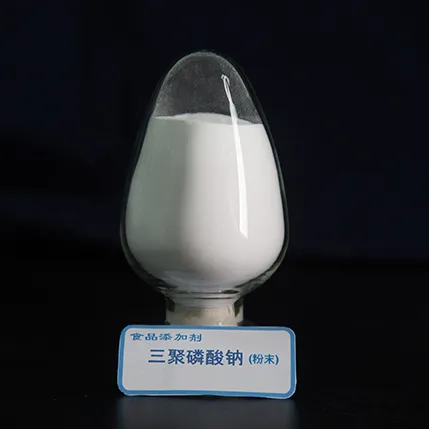Sodium Tripolyphosphate: Safety, Uses, and Health Considerations
Введение
Sodium Tripolyphosphate (STPP) is a widely used food additive known for its moisture retention, pH adjustment, and quality improvement properties. This article delves into its safety, applications, and potential health implications.
Понятие о триполифосфате натрия
STPP is an inorganic compound primarily utilized as a food additive. While the compound itself is not typically consumed in its pure form, its use in food products is generally considered safe within regulated limits.
Applications of Sodium Tripolyphosphate in Food
Удержание влаги
- STPP helps maintain the moisture content in various foods, such as vegetables, juice, and milk, enhancing their texture and freshness.
pH Adjustment
- It effectively regulates the acidity of fruit juices and softens the texture of vegetables and fruits, improving their overall quality.
Quality Improvement
- By enhancing the moisture and texture of foods, STPP contributes to an improved culinary experience, making processed foods more appealing.
Safety and Health Considerations
Irritation and Corrosiveness
- Pure STPP possesses irritative and corrosive properties due to its high phosphate content. Direct contact with the substance can cause eye irritation, resulting in symptoms like tearing and redness.
Consumption Concerns
- Ingesting pure STPP can irritate the gastrointestinal tract, leading to discomfort such as abdominal pain, nausea, and vomiting.
- For children, excessive consumption of STPP can interfere with calcium ion balance, potentially affecting bone growth and development.
Regulated Use in Food
- When added to food products as a food additive, STPP is used within safe limits established by regulatory authorities. At these levels, it does not pose significant health risks and can be safely consumed.
Other Uses of Sodium Tripolyphosphate
In Detergents
- STPP is also utilized in detergents for its water-softening properties. However, it is not intended for consumption in this form. Exposure to detergent-grade STPP can cause dermatitis, red eyes, swelling, and pain.
Handling Exposure
- If symptoms such as skin irritation or eye discomfort occur after exposure to detergent-grade STPP, it is crucial to seek medical attention promptly and follow the treatment prescribed by healthcare professionals.
Заключение
Sodium Tripolyphosphate (STPP) is a valuable food additive that enhances the quality and shelf life of various food products. While pure STPP can cause irritation and gastrointestinal discomfort, its regulated use in food processing ensures safety for consumers. It is essential to differentiate between food-grade and detergent-grade STPP to avoid potential health issues.
ЧАСТО ЗАДАВАЕМЫЕ ВОПРОСЫ
What is Sodium Tripolyphosphate (STPP) used for in food?
- STPP is used for moisture retention, pH adjustment, and improving the quality of food products.
Is Sodium Tripolyphosphate safe to consume?
- Yes, when used within regulated limits as a food additive, STPP is safe for consumption.
What are the potential health risks of pure STPP?
- Pure STPP can cause eye irritation, gastrointestinal discomfort, and, in children, potential issues with bone growth and development if consumed in large amounts.
Can STPP be used in detergents?
- Yes, STPP is used in detergents for its water-softening properties, but it should not be consumed in this form.
What should I do if I experience irritation from STPP exposure?
- Seek medical attention promptly if you experience symptoms such as dermatitis, red eyes, swelling, or pain after exposure to detergent-grade STPP.

